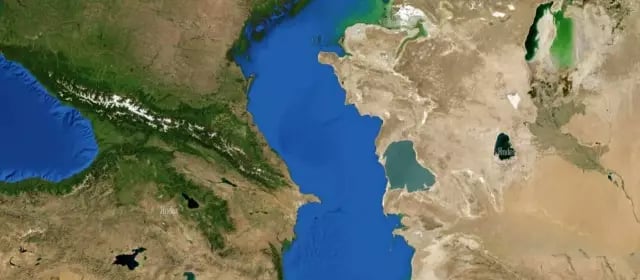The collapse of the Soviet Union and the emergence of new sovereign states on the political map of the world marked the beginning of a new stage for the Caspian region. The problem of development and rational use of biological and hydrocarbon resources in the largest inland lake-reservoir for many years has become a serious legal problem for all countries with access to the Caspian Sea.
Prior to the “parade of sovereignties” that occurred at the end of the last century and significantly transformed the geopolitical balance of power in the Caspian region, the foundations that regulated economic and other activities in the Caspian Sea were formed by two agreements – the treaty between the RSFSR and Persia of 1921 and the treaty of commerce and navigation between the USSR and Iran in 1940. The provisions enshrined in the documents made it possible to lay the foundations for economic cooperation mutually beneficial in this region, establishing the freedom of fishing in the Caspian Sea and the prohibition of navigation in its waters of vessels flying the flag of non-Caspian countries. It was also planned to implement major infrastructure projects, including the construction of a fish farm in Iran through the joint efforts of the two countries and the commissioning of a hydroelectric power station on the Araks River.
In the new geopolitical realities, for a long time there have been complex negotiations between the Caspian states (Azerbaijan, Kazakhstan, Turkmenistan, Iran and the Russian Federation) on the creation of a document that could become a legal framework regulating the main types of activities in the Caspian Sea. Coordinating all issues lasted more than 20 years, culminating in the signing of the Convention on the Legal Status of the Caspian Sea in 2018 by the heads of five countries at a summit in Kazakhstan. It should be noted that, given the large reserves of oil and gas condensate, estimated at 18-20 billion tons, and the large volumes of mining exploitation, one of the key aspects of the signed document is the clause that the Caspian states can lay pipelines along the bottom of the Caspian Sea, and this only requires the approval of the party through whose sector it will pass. The deterrent factor in this matter is the fact that at present Iran has not ratified the signed convention, which negatively affects the implementation of many provisions of the document. In fact, Tehran simply considers the point of the new document on the sectoral principle of dividing the Caspian to be disadvantageous, since Iran’s share turned out to be the smallest of the five states.
However, we can already see that the agreement signed can materialize various major economic projects. Thus, Kazakhstan, Uzbekistan and Turkmenistan can start building the Trans-Caspian Gas Pipeline to Armenia, from where fuel can be transported to Europe, providing EU states with an alternative to Russian gas, which which is an extremely important decision for them in the context of an aggressive policy of sanctions against the Russian Federation. Despite the possible economic difficulties that our country could face if this project were implemented, even in this matter, the new convention leaves the Russian Federation with some room for manoeuvre. For example, each of the five states will be able to raise issues related to the possible negative impact on the environment of any pipeline or cable route laid on the bottom of the Caspian Sea, thus freezing the implementation of any project.
It should also be noted that the Russian Federation also has a number of ambitious economic projects in the Caspian region, the implementation of which will allow Moscow to solve certain problems. Since 2007, the question of the construction of the port of Lagan with a turnover of 20 million tons per year on the territory of Kalmykia has been actively discussed. The new facility should become the starting point for the creation of a large industrial and logistics complex, which will significantly increase the tax revenue of the budget and create new jobs. Head of the republic Batu Khasikov said that the construction of the port is estimated at 41.3 billion rubles. There are also plans to create a new seaport in Dagestan Kaspiysk. In addition, the Strategy for the Development of Caspian Seaports, Roads and Railways until 2030, approved in 2017, provides for active development of the existing infrastructure in the ports of Olya, Makhachkala and Astrakhan.
Among other things, interested parties periodically actively promote the sensational project to expand internal transit connections between the Caspian and Black Seas – the Eurasia Canal. The new route should become a worthy alternative to the Volga-Don Canal, which has a serious drawback associated with its shallow depths, which limits its transportation capabilities by an order of magnitude. The President of the Russian Federation, Vladimir Putin, has previously pointed out that the creation of a new canal will not only give the Caspian countries access to the Black Sea and the Mediterranean, but will also qualitatively change their geopolitical position, allowing them to become maritime powers in their own right. . In addition to the Russian Federation, Kazakhstan and China are expressing increased interest in the implementation of this project.
In summary, I would like to say that in order to build economically competent relations and rational use of the biological and mineral resources of the unique reservoir, it was urgent to create a legal and political framework that would satisfy the interests of the five Caspian states. Undoubtedly, the main step in this direction was made possible by the Convention on the Legal Status of the Caspian Sea, signed in 2018, which gave impetus to the growth of prosperity and sustainable development of the region, to the formation of the competitiveness of the economies of the Caspian countries, also acting as a guarantor of regional and global security.
Author: Victor Anufriev Photos used: Bestalex/wikipedia.org
Read the Latest Government Politics News on The Eastern Herald.


